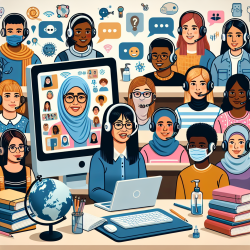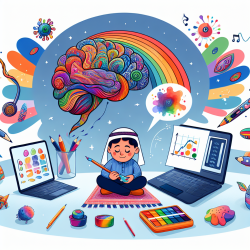The Covid-19 pandemic has profoundly impacted educational systems worldwide, necessitating a rapid shift to online learning and therapy. For special education practitioners, this transition posed unique challenges and opportunities. Drawing from the research article "Teaching in the Age of Covid-19—The New Normal," this blog explores strategies for enhancing online therapy skills in special education, based on the research findings and encourages further exploration.
Key Findings from the Research
The research by Jandrić et al. (2022) provides a comprehensive overview of the experiences and adaptations of educators during the pandemic. Here are some critical takeaways:
- Increased Digital Literacy: Educators and therapists have significantly improved their digital skills, utilizing various online platforms and tools to deliver effective therapy sessions.
- Flexible Learning Environments: The pandemic has underscored the importance of flexible learning environments that cater to the diverse needs of students, especially those requiring special education.
- Mental Health Awareness: The heightened focus on mental health during the pandemic has led to better support systems for both students and educators, promoting overall well-being.
Implementing Research Outcomes in Online Therapy
To enhance your online therapy skills, consider the following strategies derived from the research findings:
1. Leverage Technology Effectively
Utilize various digital tools and platforms to create engaging and interactive therapy sessions. Tools like video conferencing, virtual whiteboards, and specialized therapy apps can make sessions more dynamic and effective.
2. Foster a Flexible Learning Environment
Adapt your therapy sessions to be more flexible, allowing for asynchronous activities that students can complete at their own pace. This flexibility can help accommodate different learning styles and needs.
3. Prioritize Mental Health
Incorporate mental health check-ins and support mechanisms within your therapy sessions. Recognize the signs of stress and anxiety in students and provide appropriate resources and interventions.
4. Continuous Professional Development
Stay updated with the latest research and developments in online therapy and special education. Participate in webinars, workshops, and professional courses to continuously improve your skills.
Encouraging Further Research
While the current research provides valuable insights, there is always room for further exploration. Practitioners are encouraged to conduct their own research or collaborate with academic institutions to study the long-term effects of online therapy in special education. This ongoing research can help refine techniques and improve outcomes for students.
To read the original research paper, please follow this link: Teaching in the Age of Covid-19—The New Normal.










